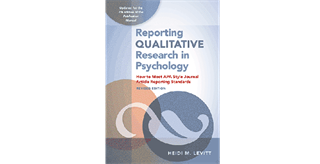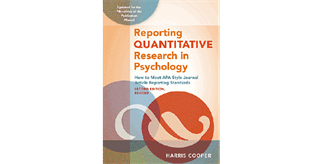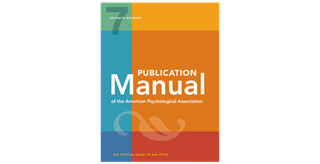Journal of Qualitative Research in Tourism


Subject Area and Category
- Arts and Humanities (miscellaneous)
Edward Elgar Publishing Ltd.
Publication type
26329670, 26329689
The set of journals have been ranked according to their SJR and divided into four equal groups, four quartiles. Q1 (green) comprises the quarter of the journals with the highest values, Q2 (yellow) the second highest values, Q3 (orange) the third highest values and Q4 (red) the lowest values.
| Category | Year | Quartile |
|---|---|---|
| Arts and Humanities (miscellaneous) | 2023 | Q2 |
The SJR is a size-independent prestige indicator that ranks journals by their 'average prestige per article'. It is based on the idea that 'all citations are not created equal'. SJR is a measure of scientific influence of journals that accounts for both the number of citations received by a journal and the importance or prestige of the journals where such citations come from It measures the scientific influence of the average article in a journal, it expresses how central to the global scientific discussion an average article of the journal is.
| Year | SJR |
|---|---|
| 2023 | 0.210 |
Evolution of the number of published documents. All types of documents are considered, including citable and non citable documents.
| Year | Documents |
|---|---|
| 2020 | 8 |
| 2021 | 10 |
| 2022 | 6 |
| 2023 | 9 |
This indicator counts the number of citations received by documents from a journal and divides them by the total number of documents published in that journal. The chart shows the evolution of the average number of times documents published in a journal in the past two, three and four years have been cited in the current year. The two years line is equivalent to journal impact factor ™ (Thomson Reuters) metric.
| Cites per document | Year | Value |
|---|---|---|
| Cites / Doc. (4 years) | 2020 | 0.000 |
| Cites / Doc. (4 years) | 2021 | 0.375 |
| Cites / Doc. (4 years) | 2022 | 0.611 |
| Cites / Doc. (4 years) | 2023 | 0.708 |
| Cites / Doc. (3 years) | 2020 | 0.000 |
| Cites / Doc. (3 years) | 2021 | 0.375 |
| Cites / Doc. (3 years) | 2022 | 0.611 |
| Cites / Doc. (3 years) | 2023 | 0.708 |
| Cites / Doc. (2 years) | 2020 | 0.000 |
| Cites / Doc. (2 years) | 2021 | 0.375 |
| Cites / Doc. (2 years) | 2022 | 0.611 |
| Cites / Doc. (2 years) | 2023 | 0.875 |
Evolution of the total number of citations and journal's self-citations received by a journal's published documents during the three previous years. Journal Self-citation is defined as the number of citation from a journal citing article to articles published by the same journal.
| Cites | Year | Value |
|---|---|---|
| Self Cites | 2020 | 0 |
| Self Cites | 2021 | 0 |
| Self Cites | 2022 | 0 |
| Self Cites | 2023 | 6 |
| Total Cites | 2020 | 0 |
| Total Cites | 2021 | 3 |
| Total Cites | 2022 | 11 |
| Total Cites | 2023 | 17 |
Evolution of the number of total citation per document and external citation per document (i.e. journal self-citations removed) received by a journal's published documents during the three previous years. External citations are calculated by subtracting the number of self-citations from the total number of citations received by the journal’s documents.
| Cites | Year | Value |
|---|---|---|
| External Cites per document | 2020 | 0 |
| External Cites per document | 2021 | 0.375 |
| External Cites per document | 2022 | 0.611 |
| External Cites per document | 2023 | 0.458 |
| Cites per document | 2020 | 0.000 |
| Cites per document | 2021 | 0.375 |
| Cites per document | 2022 | 0.611 |
| Cites per document | 2023 | 0.708 |
International Collaboration accounts for the articles that have been produced by researchers from several countries. The chart shows the ratio of a journal's documents signed by researchers from more than one country; that is including more than one country address.
| Year | International Collaboration |
|---|---|
| 2020 | 12.50 |
| 2021 | 20.00 |
| 2022 | 16.67 |
| 2023 | 22.22 |
Not every article in a journal is considered primary research and therefore "citable", this chart shows the ratio of a journal's articles including substantial research (research articles, conference papers and reviews) in three year windows vs. those documents other than research articles, reviews and conference papers.
| Documents | Year | Value |
|---|---|---|
| Non-citable documents | 2020 | 0 |
| Non-citable documents | 2021 | 1 |
| Non-citable documents | 2022 | 1 |
| Non-citable documents | 2023 | 1 |
| Citable documents | 2020 | 0 |
| Citable documents | 2021 | 7 |
| Citable documents | 2022 | 17 |
| Citable documents | 2023 | 23 |
Ratio of a journal's items, grouped in three years windows, that have been cited at least once vs. those not cited during the following year.
| Documents | Year | Value |
|---|---|---|
| Uncited documents | 2020 | 0 |
| Uncited documents | 2021 | 5 |
| Uncited documents | 2022 | 9 |
| Uncited documents | 2023 | 15 |
| Cited documents | 2020 | 0 |
| Cited documents | 2021 | 3 |
| Cited documents | 2022 | 9 |
| Cited documents | 2023 | 9 |
Evolution of the percentage of female authors.
| Year | Female Percent |
|---|---|
| 2020 | 57.14 |
| 2021 | 64.71 |
| 2022 | 46.15 |
| 2023 | 38.46 |
Evolution of the number of documents cited by public policy documents according to Overton database.
| Documents | Year | Value |
|---|---|---|
| Overton | 2020 | 0 |
| Overton | 2021 | 0 |
| Overton | 2022 | 0 |
| Overton | 2023 | 0 |
Evoution of the number of documents related to Sustainable Development Goals defined by United Nations. Available from 2018 onwards.
| Documents | Year | Value |
|---|---|---|
| SDG | 2020 | 0 |
| SDG | 2021 | 6 |
| SDG | 2022 | 5 |
| SDG | 2023 | 5 |
Leave a comment
Name * Required
Email (will not be published) * Required
* Required Cancel
The users of Scimago Journal & Country Rank have the possibility to dialogue through comments linked to a specific journal. The purpose is to have a forum in which general doubts about the processes of publication in the journal, experiences and other issues derived from the publication of papers are resolved. For topics on particular articles, maintain the dialogue through the usual channels with your editor.

Follow us on @ScimagoJR Scimago Lab , Copyright 2007-2024. Data Source: Scopus®

Cookie settings
Cookie Policy
Legal Notice
Privacy Policy
Journal of Qualitative Research in Tourism Latest Publications
Total documents, published by edward elgar publishing.
- Latest Documents
- Most Cited Documents
- Contributed Authors
- Related Sources
- Related Keywords
Book review: N.M. Leite, Q.E. Castañeda and K.M. Adams (eds), The Ethnography of Tourism: Edward Bruner and Beyond (Lexington Books, Lanham, MD, USA and London, UK 2020) 303 pp.
Ten markers of quality in designing and publishing qualitative tourism research.
The use of qualitative research methodologies in tourism is growing; however there are concerns over the quality and rigour of some studies and the way they have been written up and justified to audiences. This research note presents ten common problems with qualitative research that the authors have encountered while reviewing journal articles and examining theses, with the aim of stimulating discussion as to what constitutes good qualitative research and how best to present qualitative findings in a tourism context. Issues covered include the consideration of philosophical underpinnings, detail about the methodological approach, reflexivity, sampling, the use of thick description, the importance of creating a narrative and demonstrating the trustworthiness of the study.
How advertisers create affinity between destinations and American and British audiences: towards a theoretical framework
The purpose of this paper is to propose a theoretical framework that explores how advertisers attempt to establish affinity between destinations and British and American audiences. The proposed framework consists of four spheres, five techniques, two message strategies and four means. This framework will be presented through a qualitative content analysis of 103 cases, selected from almost 2500 print advertisements and YouTube videos. The print advertisements were published in four major tourism magazines between 2007 and 2019. Besides the theoretical contribution, a study of audience affinity that analyses many cases might be helpful for marketers and policy makers, giving them ideas of how to reach and touch specific audiences.
When words become difficult: a critical reflection of the ‘MeBox’ method in understanding senior travellers’ responses to loss
Multiple dimensions of our experiences such as visual, embodied and sensory experiences cannot always be easily expressed in words. Traditional qualitative methods may struggle to access these deep-rooted complex and emotional aspects. Tourism scholars have called for innovative methodologies to unravel layers of diverse meaning in phenomena. This article critically reflects on a visual tool called the ‘MeBox’. It was adopted in our study to explore senior travellers’ responses to loss following a major life event. The ‘MeBox’ method enabled participants to express embedded and tacit knowledge to reflect on their lived experiences. We critically review the ‘MeBox’ methodology, and provide practical learnings for scholars who may want to adopt this method as a means to understand lived experiences that are difficult to express in words.
Book review: Richard Sharpley and David Harrison (eds), A Research Agenda for Tourism and Development (Edward Elgar Publishing, Cheltenham, UK and Northampton, MA, USA 2019) 256 pp.
Observing tour operators’ interest in sustainability in finland.
The paper assesses how tour operators (TOs) address sustainability at the early stages of product development. TOs have potentially a large role in providing sustainable options for customers, and therefore contribute to sustainable tourism. The research took place during a TO familiarization trip (FAM) to a new destination. Participant observation was used as it allowed researchers unique access to participate in the same programme as the TOs. Altogether 14 tourism establishments were visited and they all provided information about sustainability. The TOs’ interest in sustainability was weak, which indicates that sustainability in the early stage is superseded by other significant factors, such as type of product, suitability, seasonality and quality. However, further research in examining when sustainability becomes an issue for TOs would be beneficial for local stakeholders.
#Bucketlist: exploring the motivations of tourists to swim with humpback whales in Niue
Swim-with-whales tourism has become a growing aspect of the marine mammal tourism scene. Several remote island destinations allow for these in-water experiences. Understanding swim-with-whales tourists’ motivations is an important aspect to effectively promoting and managing these interactions. This paper focuses on tourist motivations for swimming with humpback whales (Megaptera novaeangliae) in Niue. A qualitative research approach using 21 semi-structured in-depth interviews was used to gain these. A thematic approach to understanding the data identified eight themes that describe intrinsic and extrinsic motivations in these whale-swim participants. Of particular interest was the emotional component of engaging in the activity. In contrast to other research on marine wildlife tourism motivations, the importance of learning was absent in this study. These findings highlight the personal and variable nature of individual motivations for participating in commercial whale-swims.
Book review: Douglas G. Pearce, Tourist Destinations: Structure and Synthesis (CABI, Wallingford, UK and Boston, MA, USA 2021) 288 pp.
Revealing researcher engagement in museum-related research: a reflective account.
The absence of extended discussions about the feasibility of carrying out qualitative research within the ‘research methods’ sections of most heritage and mainstream museum studies articles means there is not much direction provided to novice heritage and museum researchers as well as aspiring PhD candidates to augment their own methodological practices. Literature related to unexpected circumstances during fieldwork, the importance of human interactions in data collection and the self-reflection of researchers in heritage and museum-related research remains limited. This paper reflectively explores aspects of the author’s journey as a PhD researcher at the Egyptian Museum in Cairo, Egypt, and the challenges encountered during fieldwork. The paper concludes that recognizing and encouraging reflexivity and interpersonal engagement and reflecting on challenging moments during the research process in museums and heritage sites brings insight to the study, and brings the researcher/researchee closer to the reader.
Book review: T. Yamamura and P. Seaton (eds), Contents Tourism and Pop Culture Fandom: Transnational Tourist Experiences (Channel View Publications Bristol, UK and Blue Ridge Summit, PA, USA 2020) 264 pp.
Export citation format, share document.
Qualitative research, tourism
- Living reference work entry
- Later version available View entry history
- First Online: 01 January 2015
- Cite this living reference work entry

- Carina Ren 3
460 Accesses
2 Citations
Qualitative research refers to inquiries applying a range of qualitative methods in order to inductively explore, interpret, and understand a given field or object under study. Qualitative research in tourism takes its inspiration primarily from the cultural and social sciences such as anthropology and sociology. Most often, the aim of this research approach is to explore and search for meaning or to develop an understanding through empirical studies, generating rich descriptions or collecting material, which may become subject to interpretation. Qualitative research seeks to avoid making generalizations, grand claims, and reductions and is often characterized by a high level of reflectivity and sensitivity to power relations and ambiguity. All of these characteristics will be elaborated further below.
The concept of qualitative research covers a range of methodologies, but is usually contrasted with and seen in opposition to quantitative and deductive research, as it attempts to...
This is a preview of subscription content, log in via an institution to check access.
Access this chapter
Institutional subscriptions
Ateljevic, I., A. Pritchard, and N. Morgan, eds. 2007 The Critical Turn in Tourism Studies: Innovative Research Methodologies. London: Elsevier.
Google Scholar
Franklin, A., and M. Crang 2001 The Trouble with Tourism and Travel Theory? Tourist Studies 1:5-22.
Article Google Scholar
Jamal, T., and K. Hollinshead 2001 Tourism and the Forbidden Zone: The Underserved Power of Qualitative Inquiry. Tourism Management 22:63-82.
Jóhannesson, G., C. Ren, R. van der Duim, and A. Munk 2014 Actor-Network Theory and Tourism Research: Approaches, Implications and Future Opportunities. In Tourism Methodologies: New Perspectives, Practices and Procedures, J. Meged, B. Blichfeldt, K. Hvass and L. Hansen, eds., pp.119-137. Copenhagen: Copenhagen Business School Press.
Law, J., and J. Urry 2004 Enacting the Social. Economy and Society 33: 390–410.
Mol, A. 1999 Ontological Politics: A Word and Some Questions. The Sociological Review 47:74-89.
Phillimore, J., and L. Goodman, eds. 2004 Qualitative Research in Tourism: Ontologies, Epistemologies and Methodologies. London: Routledge.
Ren, C., A. Pritchard, and N. Morgan 2010 Constructing Tourism Research: A Critical Approach. Annals of Tourism Research 37:885-904.
Riley, R., and L. Love 2000 The State of Qualitative Tourism Research. Annals of Tourism Research 27:164-187
Tribe, J. 2005 New Tourism Research. Tourism Recreation Research 30:5-8
Download references
Author information
Authors and affiliations.
Department of Culture and Global Studies, Aalborg University, 2450, Copenhagen, Denmark
You can also search for this author in PubMed Google Scholar
Corresponding author
Correspondence to Carina Ren .
Editor information
Editors and affiliations.
School of Hospitality Leadership, University of Wisconsin-Stout, Menomonie, Wisconsin, USA
Jafar Jafari
School of Hotel and Tourism Management, The Hong Kong Polytechnic University, Hong Kong, Hong Kong SAR
Honggen Xiao
Rights and permissions
Reprints and permissions
Copyright information
© 2014 Springer International Publishing Switzerland
About this entry
Cite this entry.
Ren, C. (2014). Qualitative research, tourism. In: Jafari, J., Xiao, H. (eds) Encyclopedia of Tourism. Springer, Cham. https://doi.org/10.1007/978-3-319-01669-6_426-1
Download citation
DOI : https://doi.org/10.1007/978-3-319-01669-6_426-1
Received : 07 July 2014
Accepted : 07 July 2014
Published : 15 September 2015
Publisher Name : Springer, Cham
Online ISBN : 978-3-319-01669-6
eBook Packages : Springer Reference Business and Management Reference Module Humanities and Social Sciences Reference Module Business, Economics and Social Sciences
- Publish with us
Policies and ethics
Chapter history
DOI: https://doi.org/10.1007/978-3-319-01669-6_426-2
DOI: https://doi.org/10.1007/978-3-319-01669-6_426-1
- Find a journal
- Track your research
Breadcrumbs Section. Click here to navigate to respective pages.

Qualitative Research in Tourism
DOI link for Qualitative Research in Tourism
Get Citation
The first to focus solely upon qualitative research in tourism, this book combines discussions of the philosophies underpinning qualitative research, with reflexive chapters that demonstrate how these techniques can be used.
Incorporating a range of case studies written by leading international scholars, this book makes clear the ways in which these pieces of research have been informed by the authors' epistemological, ontological and methodological standpoint. Based on a range of empirical tourism studies set in the context of theoretical discussion, it demonstrates the benefits of using a range of qualitative approaches to research tourism, exploring the ways in which a number of techniques, including participants observation, memory work, biographical diaries, focus groups and visual exercises, have been adopted by researchers from a range of disciplinary backgrounds to undertake empirical research in tourism.
An indispensable text for final year undergraduates, Masters and PhD students embarking on research in the field, it also will be a valuable title for academics with an interest in either tourism research or qualitative methodology. Linking theory with research practice, it offers a holistic account of qualitative research in tourism.
TABLE OF CONTENTS
Part | 2 pages, part i key ontological, epistemological and methodological issues in social science, chapter 1 | 3 pages, progress in qualitative research in tourism, chapter | 24 pages, thinking about researching the social world, chapter 2 | 16 pages, the inquiry paradigm in qualitative tourism research, chapter 3 | 3 pages, knowing about tourism, chapter | 3 pages, tourism: two fields studied through multidisciplinarity, interdisciplinarity and extradisciplinarity, chapter | 11 pages, problematising tourism knowledge, chapter 4 | 4 pages, a primer in ontological craft, chapter | 16 pages, background to the new profusion of qualitative research approaches: the continuum for ‘naturalistic’ techniques to ‘progressive’ techniques, chapter 5 | 19 pages, ontological craft in tourism studies, chapter 6 | 2 pages, (dis)embodied experience and power dynamics in tourism research, chapter | 15 pages, terms of embodiment, chapter 7 | 18 pages, standpoint research, chapter 8 | 19 pages, reflexivity and tourism research, chapter 9 | 3 pages, trustworthiness in qualitative tourism research, criteria of trustworthiness, chapter | 2 pages, triangulation, implementing trustworthiness: an illustration, chapter 10 | 11 pages, new wine in old bottles, chapter | 4 pages, acknowledgement, chapter 11 | 10 pages, from ontology, epistemology and methodology to the field, part ii from research theory to practice, chapter 12 | 3 pages, the research process as a journey, chapter | 8 pages, critique and evaluation, reflecting upon the ‘journey’, chapter 13 | 21 pages, let your data do the talking, chapter 14 | 8 pages, the life and work history methodology, chapter | 9 pages, work history analysis, chapter 15 | 8 pages, memory-work, chapter | 10 pages, phase 2: the collective meets, chapter 16 | 11 pages, contributions of qualitative research to understanding the politics of community ecotourism, from participant observation to participatory research, chapter 17 | 15 pages, shared benefits, chapter 18 | 13 pages, translators, trust and truth.
- Privacy Policy
- Terms & Conditions
- Cookie Policy
- Taylor & Francis Online
- Taylor & Francis Group
- Students/Researchers
- Librarians/Institutions
Connect with us
Registered in England & Wales No. 3099067 5 Howick Place | London | SW1P 1WG © 2024 Informa UK Limited

1st Edition
Qualitative Research in Tourism Ontologies, Epistemologies and Methodologies
- Taylor & Francis eBooks (Institutional Purchase) Opens in new tab or window
Description
The first to focus solely upon qualitative research in tourism, this book combines discussions of the philosophies underpinning qualitative research, with reflexive chapters that demonstrate how these techniques can be used. Incorporating a range of case studies written by leading international scholars, this book makes clear the ways in which these pieces of research have been informed by the authors' epistemological, ontological and methodological standpoint. Based on a range of empirical tourism studies set in the context of theoretical discussion, it demonstrates the benefits of using a range of qualitative approaches to research tourism, exploring the ways in which a number of techniques, including participants observation, memory work, biographical diaries, focus groups and visual exercises, have been adopted by researchers from a range of disciplinary backgrounds to undertake empirical research in tourism. An indispensable text for final year undergraduates, Masters and PhD students embarking on research in the field, it also will be a valuable title for academics with an interest in either tourism research or qualitative methodology. Linking theory with research practice, it offers a holistic account of qualitative research in tourism.
Table of Contents
Lisa Goodson, Jenny Phillimore
About VitalSource eBooks
VitalSource is a leading provider of eBooks.
- Access your materials anywhere, at anytime.
- Customer preferences like text size, font type, page color and more.
- Take annotations in line as you read.
Multiple eBook Copies
This eBook is already in your shopping cart. If you would like to replace it with a different purchasing option please remove the current eBook option from your cart.

Book Preview

The country you have selected will result in the following:
- Product pricing will be adjusted to match the corresponding currency.
- The title Perception will be removed from your cart because it is not available in this region.
To read this content please select one of the options below:
Please note you do not have access to teaching notes, qualitative online research in tourism – a systematic review of the literature.
Tourism Review
ISSN : 1660-5373
Article publication date: 19 December 2019
Issue publication date: 19 March 2020
This paper aims to present a systematic review of tourism articles using qualitative online methods. By focussing on tourism journals, this work explores the paradigmatic beliefs, methodological approaches and methods underpinning tourism qualitative online research.
Design/methodology/approach
This review was conducted systematically by following the reporting checklist of the preferred reporting items for systematic reviews and meta-analyses by the Centre for Reviews and Dissemination.
Overall, this systematic review indicates that the ontological and epistemological beliefs guiding online research are not clearly expressed by tourism scholars. It also shows that the possibility of using the internet for more interactive and participatory forms of research has not been fully explored by tourism scholars.
Research limitations/implications
This paper expands tourism scholars’ awareness of the range of qualitative approaches/methods available by suggesting additional research instruments that could replace or complement the traditional ones. However, by selecting only indexed journal papers, other sources of publications, such as papers published in non-Scopus and non-Web-of-Science journals, books, book chapters and conference papers, were not included in the current review.
Originality/value
This work emphasizes the important role of cyberspace in facilitating virtual interactions between researchers and participants in the co-construction of qualitative empirical material.
本文运用了互联网在线定性管理方法对旅游管理进行了具体及系统的评估。通过关注旅游期刊, 本文探索旅游在线定性管理的规范模式和方法研究。
本文依据评审和传播中心的系统鉴定标准(PRISMA)进行深入的分析和探索。
目前的旅游学术研究并未明确诠释或指导互联网对旅游管理的在线评估, 及其本体论和认知理念。利用互联网进行旅游评估的探索, 提升相关互动性和参与性都将成为旅游管理的潜在发展方向。
在现有定性管理方法的基础上, 本文提出可用于替代或补充传统研究方法的在线虚拟互动评估模式, 并开扩了学术界对旅游定性鉴定的新方法和认识。但是, 本文的研究主体仅为有索引的旅游学术期刊 (如:Scopus indexed journals), 非索引的研究期刊和发表文献, 如书籍, 探讨会文稿都不包括在本文研究范围内。
本文构建了互联网在线定性管理的模式, 并强调了现代网络在促进管理研究人员和相关参与者之间虚拟互动中所扮演的重要角色
在线方法, 定性方法, 旅游, 自反 性, 互联网人种学
Este artículo presenta una revisión sistemática de artículos de turismo que emplean métodos cualitativos en línea. Al centrarse en las revistas de turismo, este trabajo explora las creencias paradigmáticas, los enfoques metodológicos y los métodos que sustentan la investigación cualitativa en línea del turismo.
Diseño/metodología/enfoque
Esta revisión se realizó de manera sistemática siguiendo la lista de verificación de informes de los Elementos de informes preferidos para revisiones sistemáticas y metaanálisis por el Centro de Revisiones y Difusión.
En general, esta revisión sistemática indica que los estudiosos del turismo no expresan claramente las creencias ontológicas y epistemológicas que guían la investigación en línea. También muestra que los académicos del turismo no han explorado completamente la posibilidad de utilizar internet para formas de investigación más interactivas y participativas.
Limitaciones/implicaciones de la investigación
Esta revisión amplía la conciencia de los académicos del turismo sobre la gama de enfoques/métodos cualitativos disponibles al sugerir instrumentos de investigación adicionales que podrían reemplazar o complementar los tradicionales. Sin embargo, al seleccionar solo artículos de revistas indexadas, otras fuentes de publicaciones, como artículos publicados en revistas que no son Scopus y que no son de la Web-of-Science, libros, capítulos de libros y documentos de conferencias no se incluyeron en la revisión actual.
Originalidad/valor
Este trabajo enfatiza el importante papel del ciberespacio para facilitar las interacciones virtuales entre investigadores y participantes en la co-construcción de material empírico cualitativo.
Palabras claves
Métodos en línea, Métodos cualitativos, Turismo, Reflexividad, Netnografía
- Online methods
- Qualitative methods
- Reflexivity
- Netnography
Pahlevan-Sharif, S. , Mura, P. and Wijesinghe, S.N.R. (2020), "Qualitative online research in tourism – a systematic review of the literature", Tourism Review , Vol. 75 No. 2, pp. 448-465. https://doi.org/10.1108/TR-02-2019-0072
Emerald Publishing Limited
Copyright © 2019, Emerald Publishing Limited
Related articles
All feedback is valuable.
Please share your general feedback
Report an issue or find answers to frequently asked questions
Contact Customer Support
Information
- Author Services
Initiatives
You are accessing a machine-readable page. In order to be human-readable, please install an RSS reader.
All articles published by MDPI are made immediately available worldwide under an open access license. No special permission is required to reuse all or part of the article published by MDPI, including figures and tables. For articles published under an open access Creative Common CC BY license, any part of the article may be reused without permission provided that the original article is clearly cited. For more information, please refer to https://www.mdpi.com/openaccess .
Feature papers represent the most advanced research with significant potential for high impact in the field. A Feature Paper should be a substantial original Article that involves several techniques or approaches, provides an outlook for future research directions and describes possible research applications.
Feature papers are submitted upon individual invitation or recommendation by the scientific editors and must receive positive feedback from the reviewers.
Editor’s Choice articles are based on recommendations by the scientific editors of MDPI journals from around the world. Editors select a small number of articles recently published in the journal that they believe will be particularly interesting to readers, or important in the respective research area. The aim is to provide a snapshot of some of the most exciting work published in the various research areas of the journal.
Original Submission Date Received: .
- Active Journals
- Find a Journal
- Proceedings Series
- For Authors
- For Reviewers
- For Editors
- For Librarians
- For Publishers
- For Societies
- For Conference Organizers
- Open Access Policy
- Institutional Open Access Program
- Special Issues Guidelines
- Editorial Process
- Research and Publication Ethics
- Article Processing Charges
- Testimonials
- Preprints.org
- SciProfiles
- Encyclopedia

Article Menu

- Subscribe SciFeed
- Recommended Articles
- Google Scholar
- on Google Scholar
- Table of Contents
Find support for a specific problem in the support section of our website.
Please let us know what you think of our products and services.
Visit our dedicated information section to learn more about MDPI.
JSmol Viewer
Trends in sustainable tourism paradigm: resilience and adaptation.

1. Introduction
2. state of the art, 2.1. philosophical and conceptual foundations, 2.2. sustainable tourism.
- What are the current trends in sustainable tourism paradigm research within the context of its dual theory–practice framework and its multiple dimensions?
- How does the academic communication network support and advance the body of knowledge in sustainable tourism, thereby fostering influential intellectual growth and activism for sustainable development within the tourism field?
- What alternatives could potentially weaken the resilience of the existing sustainable tourism paradigm?
2.3. Bibliometrics and Social Network Analysis in the Tourism Research Field
3. research methodology, 3.1. sample, 3.2. methodology and research tools, 4. findings, 4.1. research trend, 4.2. advances in academic communication, 4.3. trends in sustainable tourism paradigm alternatives, 5. discussion, 6. limitations, 7. conclusions, institutional review board statement, informed consent statement, data availability statement, acknowledgments, conflicts of interest.
- WCED. Our Common Future ; Oxford University Press: Oxford, UK, 1987. [ Google Scholar ]
- UNESCO. Education for Sustainable Development ; Source Book; United Nation Educational, Scientific and Cultural Organisation: Paris, France, 2012. [ Google Scholar ]
- Bramwell, B.; Lane, B. What drives research on sustainable tourism? J. Sustain. Tour. 2015 , 23 , 1–3. [ Google Scholar ] [ CrossRef ]
- Moyle, B.; Moyle, C.I.; Ruhanen, L.; Weaver, D.; Hadinejad, A. Are we really progressing sustainable tourism research? A bibliometric analysis. J. Sustain. Tour. 2021 , 29 , 106–122. [ Google Scholar ] [ CrossRef ]
- UNEP&WTO. Making Tourism More Sustainable—A Guide for Policy Makers ; United Nations Environment Programme, World Tourism Organization: Paris, France, 2005. [ Google Scholar ]
- UN Tourism (n.d.). Sustainable Development. UN Tourism. A United Nations Specialized Agency. Available online: https://www.unwto.org/sustainable-development (accessed on 19 July 2024).
- UN. Transforming our World: The 2030 Agenda for Sustainable Development ; United Nations Publication: New York, NY, USA, 2015; Available online: https://sdgs.un.org/publications/transforming-our-world-2030-agenda-sustainable-development-17981 (accessed on 1 June 2023).
- Kuhn, T.S. The Structure of Scientific Revolutions ; University of Chicago Press: Chicago, IL, USA, 1962. [ Google Scholar ]
- McCool, S.; Moisey, R.; Nickerson, N. What Should Tourism Sustain? The Disconnect with Industry Perceptions of Useful Indicators. J. Travel Res. 2011 , 40 , 124–131. [ Google Scholar ] [ CrossRef ]
- McMillan, G.S.; Casey, D.L. Paradigm shifts in industrial relations: Abibliometric and social network approach. Adv. Ind. Labor Relat. 2010 , 17 , 207–255. [ Google Scholar ]
- Tribe, J.; Liburd, J.J. The tourism knowledge system. Ann. Tour. Res. 2016 , 57 , 44–61. [ Google Scholar ] [ CrossRef ]
- Politi, V. Incommensurability, plain difference and communication in interdisciplinary research. In Integration and Implementation Insights ; 2019; Available online: https://i2insights.org/2019/04/09/understanding-incommensurability/ (accessed on 22 June 2023).
- Dwyer, L. Saluting while the ship sinks: The necessity for tourism paradigm change. J. Sustain. Tour. 2018 , 26 , 29–48. [ Google Scholar ] [ CrossRef ]
- Hunter, C. Sustainable tourism as an adaptive paradigm. Ann. Tour. Res. 1997 , 24 , 850–867. [ Google Scholar ] [ CrossRef ]
- Luo, Y.; Deng, J. The new environmental paradigm and nature-based tourism motivation. J. Travel Res. 2008 , 46 , 392–402. [ Google Scholar ] [ CrossRef ]
- Mihalic, T. Tourism Sustainability Paradigm. In Encyclopaedia of Tourism Management and Marketing ; Buhalis, D., Ed.; Edward Elgar Publishing: Cheltenham, UK; Northampton, MA, USA, 2022. [ Google Scholar ] [ CrossRef ]
- Tribe, J.; Dann, G.; Jamal, T. Paradigms in tourism research: A trialogue. Tour. Recreat. Res. 2015 , 40 , 28–47. [ Google Scholar ] [ CrossRef ]
- Jafari, J. Research and scholarship: The basis of tourism education. J. Tour. Stud. 2003 , 1 , 33–41. [ Google Scholar ]
- Young, G. Tourism Blessing or Blight? Penguin Books, Inc.: Baltimore, MD, USA, 1973. [ Google Scholar ]
- Smith, V.L.; Eadington, W.R. (Eds.) Tourism Alternatives: Potentials and Problems in the Development of Tourism ; University of Pennsylvania Press Anniversary Collection: Philadelphia, PA, USA, 1992. [ Google Scholar ]
- Weaver, D. Can sustainable tourism survive climate change? J. Sustain. Tour. 2011 , 19 , 5–15. [ Google Scholar ] [ CrossRef ]
- Bowen, H.R. Social Responsibilities of a Businessman ; Harper & Brothers: London, UK, 1953. [ Google Scholar ]
- OECD. Corporate Social Responsibility: Partners for Progress ; Organisation of Economic Cooperation and Development: Paris, France, 2001. [ Google Scholar ]
- Norris, M.; Oppenheim, C. Comparing alternatives to the Web of Science for coverage of the social sciences” literature. J. Informetr. 2007 , 1 , 161–169. [ Google Scholar ] [ CrossRef ]
- Shi, L.Y.; Han, L.W.; Yang, F.M.; Gao, L.J. The Evolution of Sustainable Development Theory: Types, Goals, and Research Prospects. Sustainability 2019 , 11 , 7158. [ Google Scholar ] [ CrossRef ]
- Munasinghe, M. Making Development More Sustainable: Sustainomics Framework ; Colombo MIND Press: Palos Verdes Estates, CA, USA, 2010. [ Google Scholar ]
- Inskeep, E. Tourism Planning: An Integrated and Sustainable Development Approach ; John Wiley & Sons: New York, NY, USA, 1991. [ Google Scholar ]
- WTO. Global Code of Ethics for Tourism ; United Nations World Tourism Organisation: Madrid, Spain, 1999. [ Google Scholar ]
- WES. Quebec Declaration on Ecotourism ; World Ecotourism Summit: Montreal, Quebec, Canada, 2002. [ Google Scholar ]
- Goodwin, H. Taking Responsibility for Tourism ; Goodfellow Publishers Limited: Oxford, UK, 2011. [ Google Scholar ]
- RTP&WCP. Cape Town Declaration on Responsible Tourism. Cape Town: Responsible Tourism Partnership and Western Cape Tourism, Conference on Responsible Tourism in Destinations. 2002. Available online: https://responsibletourismpartnership.org/cape-town-declaration-on-responsible-tourism/ (accessed on 8 September 2024).
- UNWTO. Framework Convention on Tourism Ethics. St. Petersburg ; Russian Federation: UNWTO General Assembly: Madrid, Spain, 2019. [ Google Scholar ]
- UNWTO&UNEP. Tourism and the Sustainable Development Goals—Journey to 2030 ; UNWTO: Madrid, Spain, 2017. [ Google Scholar ]
- UNWTO. UNWTO Guidelines for Institutional Strengthening of Destination Management Organizations (DMOs). Preparing DMOs for New Challenges ; United Nation World Tourism Organisation: Madrid, Spain, 2019. [ Google Scholar ]
- One Planet Sustainable Tourism Programme (2021)—Glasgow Declaration: A Commitment to a Decade of Climate Action. One Planet Network. 2021. Available online: https://www.oneplanetnetwork.org/sites/default/files/2022-02/GlasgowDeclaration_EN_0.pdf (accessed on 1 July 2024).
- Buhalis, D. (Ed.) Encyclopedia of Tourism Management and Marketing ; Edward Elgar Publishing: Cheltenham, UK; Northampton, MA, USA, 2022. [ Google Scholar ]
- Elkington, J. Cannibals with Forks: The Triple Bottom Line of 21st Century Business ; Capstone: Oxford, UK, 1997. [ Google Scholar ]
- Frey, B.S. Umweltoekonomie , 2nd ed.; Vandenhoeck & Ruprecht in Goettingen: Goettingen, Germany, 1985. [ Google Scholar ]
- Mihalic, T. Conceptualising overtourism: A sustainability approach. Ann. Tour. Res. 2020 , 84 , 103025. [ Google Scholar ] [ CrossRef ]
- Dwyer, L. Measuring the Sustainability of Tourism (SF-MST): New Wine in an Old Bottle? Sustainability 2024 , 16 , 5867. [ Google Scholar ] [ CrossRef ]
- Bramwell, B.; Higham, J.; Lane, B.; Miller, G. Twenty-five years of sustainable tourism and the Journal of Sustainable Tourism: Looking back and moving forward. J. Sustain. Tour. 2017 , 25 , 1–9. [ Google Scholar ] [ CrossRef ]
- Buckley, R. Sustainable Tourism: Research and Reality. Ann. Tour. Res. 2012 , 39 , 528–546. [ Google Scholar ] [ CrossRef ]
- Mihalic, T.; Mohamadi, S.; Abbasi, A.; David, L.D. Mapping a Sustainable and Responsible Tourism Paradigm: A Bibliometric and Citation Network Analysis. Sustainability 2021 , 13 , 853. [ Google Scholar ] [ CrossRef ]
- Molina-Azor, J.F.; Font, X. Mixed methods in sustainable tourism research: An analysis of prevalence, designs and application in JOST (2005–2014). J. Sustain. Tour. 2016 , 24 , 549–573. [ Google Scholar ] [ CrossRef ]
- Serrano, L.; Sianes, A.; Ariza-Montes, A. Using bibliometric methods to shed light on the concept of sustainable tourism. Sustainability 2019 , 11 , 6964. [ Google Scholar ] [ CrossRef ]
- Ruhanen, L.; Weiler, B.; Moyle, B.D.; McLennan C-l, J. Trends and patterns in sustainable tourism research: A 25-year bibliometric analysis. J. Sustain. Tour. 2015 , 23 , 517–535. [ Google Scholar ] [ CrossRef ]
- Nunkoo, R.; Sharma, A.; Rana, N.P.; Dwivedi, Y.K.; Sunnassee, V.A. Advancing sustainable development goals through interdisciplinarity in sustainable tourism research. J. Sustain. Tour. 2021 , 31 , 735–759. [ Google Scholar ] [ CrossRef ]
- Higham, J.; Font, X. Decarbonising academia: Confronting our climate hypocrisy. J. Sustain. Tour. 2020 , 28 , 1–9. [ Google Scholar ] [ CrossRef ]
- Harzing, A.-W.; Alakangas, S. Google Scholar, Scopus and the Web of Science: A longitudinal and cross-disciplinary comparison. Scientometrics 2016 , 106 , 787–804. [ Google Scholar ] [ CrossRef ]
- Mihalic, T. SEBLU 2022 Data Files—Paradigm Research Project P5-0117. ResearchGate 2022 . [ Google Scholar ] [ CrossRef ]
- Chen, C. CiteSpace II: Detecting and Visualizing Emerging Trends and Transient Patterns in Scientific Literature. J. Am. Soc. Inf. Sci. Technol. 2006 , 57 , 359–377. [ Google Scholar ] [ CrossRef ]
- Butler, R. The Concept of the Tourism Area Cycle of Evolution: Implications for Management of Resources. Can. Geogr. 1980 , 24 , 5–12. [ Google Scholar ] [ CrossRef ]
- Jamal, T.B.; Getz, D. Collaboration theory and community tourism planning. Ann. Tour. Res. 1995 , 22 , 186–204. [ Google Scholar ] [ CrossRef ]
- Choi, C.; Sirakaya, E. Sustainability indicators for managing community tourism. Tour. Manag. 2006 , 27 , 1274–1289. [ Google Scholar ] [ CrossRef ]
- Butler, E.W. Sustainable tourism: A state-of-the-art review. Tour. Geogr. 1999 , 1 , 7–25. [ Google Scholar ] [ CrossRef ]
- Liu, Z. Sustainable Tourism Development: A Critique. J. Sustain. Tour. 2003 , 11 , 459–475. [ Google Scholar ] [ CrossRef ]
- Saarinen, J. Traditions of sustainability in tourism studies. Ann. Tour. Res. 2006 , 33 , 1121–1140. [ Google Scholar ] [ CrossRef ]
- Scheyvens, R. Ecotourism and the empowerment of local communities. Tour. Manag. 1999 , 20 , 245–249. [ Google Scholar ] [ CrossRef ]
- Gössling, S. Global environmental consequences of tourism. Glob. Environ. Change 2002 , 12 , 283–302. [ Google Scholar ] [ CrossRef ]
- Liburd, J. Understanding Collaboration and Sustainable Tourism Development. In Collaboration for Sustainable Tourism Development ; Liburdm, J., Edwards, D., Eds.; Goodfellow Publishers Ltd.: Oxford, UK, 2018. [ Google Scholar ]
- Sharpley, R. Tourism and Sustainable Development: Exploring the Theoretical Divide. J. Sustain. Tour. 2000 , 8 , 1–19. [ Google Scholar ] [ CrossRef ]
- Dodds, R.; Ali, A.; Galaski, K. Mobilizing knowledge: Determining key elements for success and pitfalls in developing community-based tourism. Curr. Issues Tour. 2018 , 21 , 1547–1568. [ Google Scholar ] [ CrossRef ]
- Merriam-Webster (n.d.) Rival. Available online: https://www.merriam-webster.com/dictionary/riv (accessed on 1 July 2023).
- Higgins-Desbiolles, F. Sustainable tourism: Sustaining tourism or something more? Tour. Manag. Perspect. 2018 , 25 , 157–160. [ Google Scholar ] [ CrossRef ]
- Scott, D.; Hall, C.; Gossling, S. Tourism and Climate Change: Impacts, Adaptation & Mitigation ; Routledge: London, UK, 2012. [ Google Scholar ]
- Wagner, G. Und Wenn Wir Einfach Die Sonne Verdunkeln ; Oekom Verlag: Muenchen, Germany, 2023. [ Google Scholar ]
- Shafiee, S.; Rajabzadeh Ghatari, A.; Hasanzadeh, A.; Jahanyan, S. Developing a model for sustainable smart tourism destinations: A systematic review. Tour. Manag. Perspect. 2019 , 31 , 287–300. [ Google Scholar ] [ CrossRef ]
- Butler, R. From too many to too few: The impact of COVID-19 on overtourism. CABI: From too many to too few: The impact of COVID-19 on overtourism ; FCABI Blog; CABI: Wallingford, UK, 2020. [ Google Scholar ]
- Cotterell, D.; Hales, R.; Arcodia, C.; Ferreira, J.-A. Overcommitted to tourism and under committed to sustainability: The urgency of teaching “strong sustainability” in tourism courses. J. Sustain. Tour. 2019 , 27 , 882–902. [ Google Scholar ] [ CrossRef ]
- Becken, S.; Kaur, J. Anchoring “tourism value” within a regenerative tourism paradigm—A government perspective. J. Sustain. Tour. 2022 , 30 , 52–68. [ Google Scholar ] [ CrossRef ]
- Mihalic, T. Metaversal sustainability: Conceptualisation within the sustainable tourism paradigm. Tour. Rev. 2024 . [ Google Scholar ] [ CrossRef ]
- Redman, D.L. You Can Now Book a Ticket to Outer Space. The Future of Travel. AFAR. Available online: https://www.afar.com/magazine/how-to-book-a-virgin-galactic-space-flight (accessed on 16 February 2022).
- Buhalis, D.; Leung, D.; Lin, M. Metaverse as a disruptive technology revolutionizing tourism management and marketing. Tour. Manag. 2023 , 97 , 104724. [ Google Scholar ] [ CrossRef ]
Click here to enlarge figure
| Rank | Subject | Count | BC | Year | Rank | Subject | Count | BC | Year |
|---|---|---|---|---|---|---|---|---|---|
| 1 | Hospitality, leisure, sport, and tourism | 2149 | 0.03 | 1992 | 6 | Economics | 468 | 0.06 | 1995 |
| 2 | Environmental sciences | 1433 | 0.25 | 1991 | 7 | Business | 421 | 0.02 | 1997 |
| 3 | Green and sustain. science and technology | 1322 | 0.09 | 1999 | 8 | Social scien., interdiscipl. | 309 | 0.10 | 2001 |
| 4 | Environmental studies | 1230 | 0.27 | 1991 | 9 | Geography | 258 | 0.04 | 1991 |
| 5 | Management | 667 | 0.09 | 1994 | 10 | Ecology | 218 | 0.04 | 1991 |
| Cluster Label | Size | Silhouette | Keywords (LLR) |
|---|---|---|---|
| 1 | 2 | 3 | 4 |
| Category 1 Sustainable tourism paradigm (possessing all features of Kuhn’s dual framework) | |||
| #0 Sustainable Tourism | 240 | 0.67 | sustainable tourism; indicators; sustainable tourism indicators; sustainable development; sustainability |
| Category 2 Close to sustainable tourism paradigm (sustainability values based dimensions) | |||
| #2 Ecotourism | 113 | 0.83 | ecotourism; conservation; sustainable; enclave tourism; protected area tourism |
| #1 CSR | 158 | 0.85 | corporate social responsibility (CSR); hotel; theory of planned behaviour; hotel industry; sustainable practices |
| #4 SET/QoL | 86 | 0.87 | social exchange theory (SET); quality of life (QoL); sustainable livelihood; tourism development; tourism impact |
| #5 CBT | 77 | 0.89 | community-based tourism (CBT); Ecuador; nature conservation; CBT, project; sustainable livelihoods |
| Category 3 Rival and distant to sustainable tourism paradigm (economic values based dimensions) | |||
| #6 Destination competitiveness | 68 | 0.90 | destination competitiveness; competitiveness; creative tourism; destination image; tourism competitiveness |
| #7 Overtourism | 66 | 0.92 | overtourism; urban planning; urban tourism; undertourism; overcrowding |
| #9 Economic growth | 43 | 0.98 | economic growth; causality; energy consumption; carbon emissions; CO emissions |
| Category 4 Quasi-paradigms (possessing some but not all features of Kuhn’s dual framework) | |||
| #3 Climate change | 103 | 0.92 | climate change; behaviour change; life cycle assessment; air travel; carbon footprint |
| #8 Smart tourism | 63 | 0.96 | smart tourism; cultural heritage; smart cities; technology; local food |
| #10 COVID-19 | 40 | 0.99 | COVID-19 (Coronavirus Disease); well-being; community impact; recovery strategies; transformation |
| Category 5 Emerging quasi-paradigm (possessing some but not all features of Kuhn’s dual framework) | |||
| #16 SDG | 13 | 0.99 | sustainable development goals; income distribution; Nepal; input–output model; precarity |
| Cluster | BC | Occurrence | Key Source by Author, Year and Title |
|---|---|---|---|
| #0 ST | 0.04 | 115 | Jamal, Getz, 1995: Collaboration theory and community tourism planning [ ] |
| #0 ST | 0.03 | 153 | Choi, Sirakaya, 2006: Sustainability indicators for managing community tourism [ ] |
| #0 ST | 0.03 | 137 | Hunter, 1997: Sustainable tourism as an adaptive paradigm [ ] |
| 223#0 ST | 0.02 | 205 | Butler, 1999: Sustainable tourism: A state-of-the-art review [ ] |
| #0 ST | 0.01 | 172 | Buckley, 2012: Sustainable tourism: Research and reality [ ] |
| #0 ST | 0.02 | 172 | Liu, 2003: Sustainable tourism development: A critique [ ] |
| #0 ST | 0.02 | 140 | Saarinen, 2006: Traditions of sustainability in tourism studies [ ] |
| #0 ST | 0.00 | 118 | UNEP and WTO, 2015: Making tourism more sustainable [ ] |
| #1 CSR | 0.16 | 215 | WCED, 1987: Our common future [ ] |
| #2 Ecotourism | 0.03 | 79 | Scheyvens, 1999: Ecotourism and the empowerment of local communities [ ] |
| #3 Climate Change | 0.03 | 85 | Gössling, 2002: Global environmental consequences of tourism [ ] |
| #7 Overtourism | 0.11 | 214 | Butler, 1980: The concept of a tourist area cycle of evolution [ ] |
| The statements, opinions and data contained in all publications are solely those of the individual author(s) and contributor(s) and not of MDPI and/or the editor(s). MDPI and/or the editor(s) disclaim responsibility for any injury to people or property resulting from any ideas, methods, instructions or products referred to in the content. |
Share and Cite
Mihalic, T. Trends in Sustainable Tourism Paradigm: Resilience and Adaptation. Sustainability 2024 , 16 , 7838. https://doi.org/10.3390/su16177838
Mihalic T. Trends in Sustainable Tourism Paradigm: Resilience and Adaptation. Sustainability . 2024; 16(17):7838. https://doi.org/10.3390/su16177838
Mihalic, Tanja. 2024. "Trends in Sustainable Tourism Paradigm: Resilience and Adaptation" Sustainability 16, no. 17: 7838. https://doi.org/10.3390/su16177838
Article Metrics
Article access statistics, further information, mdpi initiatives, follow mdpi.

Subscribe to receive issue release notifications and newsletters from MDPI journals

Journal Article Reporting Standards (JARS)
APA Style Journal Article Reporting Standards offer guidance on what information should be included in all manuscript sections for quantitative, qualitative, and mixed methods research and include how to best discuss race, ethnicity, and culture.

Introducing Journal Article Reporting Standards for Race, Ethnicity, and Culture (JARS–REC)
JARS–REC were created to develop best practices related to the manner in which race, ethnicity, and culture are discussed within scientific manuscripts in psychological science.

Quantitative research
Use JARS–Quant when you collect your study data in numerical form or report them through statistical analyses.

Qualitative research
Use JARS–Qual when you collect your study data in the form of natural language and expression.

Mixed methods research
Use JARS–Mixed when your study combines both quantitative and qualitative methods.

Race, ethnicity, culture
Use JARS–REC for all studies for guidance on how to discuss race, ethnicity, and culture.
What are APA Style JARS?
APA Style Journal Article Reporting Standards (APA Style Jars ) are a set of standards designed for journal authors, reviewers, and editors to enhance scientific rigor in peer-reviewed journal articles. Educators and students can use APA Style JARS as teaching and learning tools for conducting high quality research and determining what information to report in scholarly papers.
The standards include information on what should be included in all manuscript sections for:
- Quantitative research ( Jars –Quant)
- Qualitative research ( Jars –Qual)
- Mixed methods research ( Jars –Mixed)
Additionally, the APA Style Journal Article Reporting Standards for Race, Ethnicity, and Culture ( Jars – Rec ) provide guidance on how to discuss race, ethnicity, and culture in scientific manuscripts. Jars – Rec should be applied to all research, whether it is quantitative, qualitative, or mixed methods.
- Race, Ethnicity, and Culture ( Jars – Rec )
Using these standards will make your research clearer and more accurate as well as more transparent for readers. For quantitative research, using the standards will increase the reproducibility of science. For qualitative research, using the standards will increase the methodological integrity of research.
Jars –Quant should be used in research where findings are reported numerically (quantitative research). Jars –Qual should be used in research where findings are reported using nonnumerical descriptive data (qualitative research). Jars –Mixed should be applied to research that includes both quantitative and qualitative research (mixed methods research). JARS–REC should be applied to all research, whether it is quantitative, qualitative, or mixed methods.
For more information on APA Style JARS:
- Read Editorial: Journal Article Reporting Standards
- View an infographic (PDF, 453KB) to learn about the benefits of JARS and how they are relevant to you
- Listen to a podcast with Drs. Harris Cooper and David Frost discussing JARS and implications for research in psychology
Many aspects of research methodology warrant a close look, and journal editors can promote better methods if we encourage authors to take responsibility to report their work in clear, understandable ways. —Nelson Cowan, Editor, Journal of Experimental Psychology: General
Read more testimonials
Watch a video about JARS
This content is disabled due to your privacy settings. To re-enable, please adjust your cookie preferences.
This video describes and discusses the updated APA Style Journal Article Reporting Standards.
Related products

Reporting Qualitative Research in Psychology
Journal article reporting standards for qualitative research

Reporting Quantitative Research in Psychology
Journal article reporting standards for quantitative research

Publication Manual, 7th Edition
The official source for writing papers and creating references in seventh edition APA Style
Jars resources
- History of APA’s journal article reporting standards
- APA Style JARS supplemental glossary
- Supplemental resource on the ethic of transparency in JARS
- Frequently asked questions
- JARS-Quant Decision Flowchart (PDF, 98KB)
- JARS-Quant Participant Flowchart (PDF, 98KB)
Jars articles
- Jars –Quant article
- Jars –Qual / Mixed article
- Jars – rec executive summary
Questions / feedback
Email an APA Style Expert if you have questions, feedback, or suggestions for modules to be included in future JARS updates.
APA resources
- APA Databases and Electronic Resources
- APA Journals
- Journal Author Resource Center
- Education and Career
- Psychological Science
- Open Science at APA
- How to Review a Manuscript
From the APA Style blog

Introducing APA Style Journal Article Reporting Standards for Race, Ethnicity, and Culture
These standards are for all authors, reviewers, and editors seeking to improve manuscript quality by encouraging more racially and ethnically conscious and culturally responsive journal reporting standards for empirical studies in psychological science.

APA Style JARS for high school students
In this post, we provide an overview of APA Style JARS and resources that can be shared with high school students who want to learn more about effective communication in scholarly research.

Happy 2022, APA Stylers!
This blog post is dedicated to our awesome APA Style users. You can use the many resources on our website to help you master APA Style and improve your scholarly writing.

APA Style JARS on the EQUATOR Network
The APA Style Journal Article Reporting Standards (APA Style JARS) have been added to the EQUATOR Network. The network aims to promote accuracy and quality in reporting of research.

APA Style JARS: Resources for instructors and students
APA Style Journal Article Reporting Standards (APA Style JARS) are a set of guidelines for papers reporting quantitative, qualitative, and mixed methods research that can be used by instructors, students, and all others reading and writing research papers.

IMAGES
VIDEO
COMMENTS
The Journal of Qualitative Research in Tourism furthers the frontiers of knowledge and understanding of tourism research and its applications by providing an interdisciplinary forum for qualitative research.Researchers can share their work with others and discuss the issues raised by using qualitative approaches in their research practice. The journal will be a valuable resource for those ...
The Journal of Qualitative Research in Tourism (JQRT), published by Edward Elgar Publishing, has been established in order to be dedicated exclusively to the qualitative interpretation and analysis of tourism and hospitality. The journal aims to mark an important milestone as the first ever journal on the very important area of qualitative ...
in Journal of Qualitative Research in Tourism. Print ISSN: 26329689 Published: 25 Nov 2020 ... Qualitative Methods in Tourism Research: Theory and Practice (Channel View Publications, Bristol, UK and Summit, PA, USA 2018) 320 pp. By: Xavier Matteucci. Pages: 131-133 ...
Qualitative research refers to research applying a methodology as well as one of a range of methods, which seeks to explore, interpret, understand, and potentially intervene into a given field or issue under study. Qualitative research in tourism takes its inspiration primarily from the humanities and the social sciences, such as cultural ...
2023 0.21. The SJR is a size-independent prestige indicator that ranks journals by their 'average prestige per article'. It is based on the idea that 'all citations are not created equal'. SJR is a measure of scientific influence of journals that accounts for both the number of citations received by a journal and the importance or prestige of ...
The use of qualitative research methodologies in tourism is growing; however there are concerns over the quality and rigour of some studies and the way they have been written up and justified to ...
Qualitative research, tourism. Qualitative research refers to research applying a range of qualitative methods in order to. inductively explore, interpret, and understand a given field or object ...
The Way. The use of qualitative research methodologies in tourism is growing; however there are concerns over the quality and rigour of some studies and the way they have been written up and justified to audiences. This research note presents ten common problems with qualitative research that the authors have encountered while reviewing journal ...
Introduction. Qualitative inquiry approaches have made a significant contribution to tourism studies. The use and acceptance of qualitative research has helped the field towards a deeper understanding of the social, cultural and political connectivities within and for tourism (Jennings, 2009, Phillimore and Goodson, 2004, Riley and Love, 2000).Indeed, Botterill (2001) has demonstrated how ...
Journal of Qualitative Research in Tourism. 2,028 likes. The Journal of Qualitative Research in Tourism furthers the frontiers of knowledge and understanding
Journal of qualitative research in tourism (Online) Identifiers. ISSN : 2632-9689. Linking ISSN (ISSN-L): 2632-9670. Resource information Archival Status. Title proper: Journal of qualitative research in tourism. Other variant title: JQRT. Country: United Kingdom. Medium: Online. Status Publisher Keeper From To
Qualitative tourism research not only refers to (qualitative) methods but also denotes a larger movement which challenges the previously dominating role of quantitative methods within the study of tourism. This movement is reflected in the emergence of new tourism research (Tribe 2005) and critical tourism studies (Ateljevic et al. 2007 ...
ABSTRACT. The first to focus solely upon qualitative research in tourism, this book combines discussions of the philosophies underpinning qualitative research, with reflexive chapters that demonstrate how these techniques can be used. Incorporating a range of case studies written by leading international scholars, this book makes clear the ways ...
Wei Wei, PhD, is an associate professor at the Rosen College of Hospitality Management of University of Central Florida.Dr. Wei's research interests include consumer behavior, experience, and psychology in hospitality and tourism. Her academic papers have been published by premium peer-reviewed journals, such as Tourism Management, Annals of Tourism Research, Journal of Service Research ...
The first to focus solely upon qualitative research in tourism, this book combines discussions of the philosophies underpinning qualitative research, with reflexive chapters that demonstrate how these techniques can be used. Incorporating a range of case studies written by leading international scholars, this book makes clear the ways in which these pieces of research have been informed by the ...
Volume 2: Issue 1 (May 2021) in Journal of Qualitative Research in Tourism. Print ISSN: 26329689. Published: 19 May 2021. All Issues. Uncovering absences and gaps: using Ketso in qualitative research for accessible tourism. By: Alison McIntosh and Cheryl Cockburn-Wootten.
By focussing on tourism journals, this work explores the paradigmatic beliefs, methodological approaches and methods underpinning tourism qualitative online research.,This review was conducted systematically by following the reporting checklist of the preferred reporting items for systematic reviews and meta-analyses by the Centre for Reviews ...
This guide explains the focus, rigor, and relevance of qualitative research, highlighting its role in dissecting complex social phenomena and providing in-depth, human-centered insights. ... Langley A. (2013). Approaching the conceptual leap in qualitative research. International Journal of Management Reviews, 15(2), 149-166. https://doi.org ...
This study stems from an international project with the mission of providing innovative didactic orientations to guide the logic of scientific research (research practice) and the logic of scientific text (scientific writing), specifying concrete routes for reflection and action (Deroncele-Acosta, 2022).Given this, especially for the guidance of research at the master's and doctoral level ...
This research aims to analyze the relationship between cocoa-based tourist experiences and tourists' perceptions of image, satisfaction and loyalty regarding a cultural destination. A quantitative approach was used, with data obtained via surveys distributed to tourists participating in a cocoa-based culinary experience in the Dominican Republic.
In recent decades, sustainable tourism has emerged as a central paradigm, attracting growing scholarly interest. External factors, such as the SDGs, climate change agendas, smart and digitalized tourism, cyber and astronaut travel, pandemics, and shifting trends in economic competitiveness, mass tourism, and overtourism, are shaping the 21st-century paradigmatic landscape, challenging both the ...
in Journal of Qualitative Research in Tourism. Online ISSN: 2632-9689 Print ISSN: 2632-9670 ... How to use thematic analysis in qualitative research. Sustainability and justice: farm animals in rural tourism and lessons to be learned.
The International Journal of Tourism Research (IJTR) is a travel research journal publishing current research developments in tourism and hospitality.
This commentary is based on a presentation given at the annual meeting of the Coalition for Critical Qualitative Research at the 19th International Congress of Qualitative Inquiry. ... She is an Associate Editor for Qualitative Health Research and the Journal of Humanities in Rehabilitation ... Learnings from a tourism development project in ...
APA Style JARS are standards for journal authors, reviewers, and editors to enhance scientific rigor in peer-reviewed journal articles. They cover quantitative, qualitative, mixed methods, and race, ethnicity, and culture research.
in Journal of Qualitative Research in Tourism. Print ISSN: 26329670. Published: 26 Nov 2021. All Issues. Journal. When words become difficult: a critical reflection of the 'MeBox' method in understanding senior travellers' responses to loss. By: Uditha Ramanayake, Cheryl Cockburn-Wootten, and Alison McIntosh.
Generative AI models, with their enhanced capacity for conversation, will soon find widespread applications in qualitative research, especially in the disciplines of social science and public policy. Although researchers guarantee the confidentiality of the data, the tools they use for data analysis are largely their choice and remain ...
London Journal of Research in Management and Business 18(2): 1-23. ... Seakhoa-King A (2021) Mixed methods research in tourism: A systematic sequential approach. Folia Turistica 56: 1-26. Crossref. Google Scholar. ... International Journal of Quantitative and Qualitative Research Methods 9(2): 1-15.
ces• PorticoSubmission InformationQRT is a bi-annual journal dedicated to advancing understanding of qualitative research in. the fields of tourism and hospitality.The editor seeks high quality original researc. articles of up to 8,000-10,000 words. These may be theoretical, empirical or methodological studi.
Copyediting, typesetting, and review of the resulting proofs will be undertaken on this manuscript before final publication of the Version of Record (VoR). During production and pre-press, errors may be discovered which could affect the content, and all legal disclaimers that apply to the journal relate to these versions also.